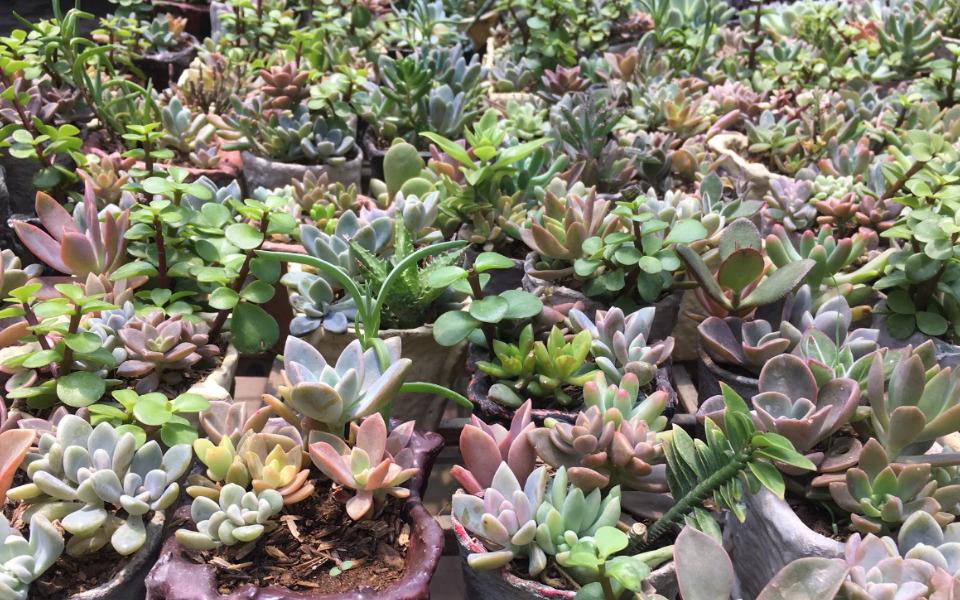In the time of COVID-19, being surrounded by plants is actually important

While a lot of us have become plantitos and plantitas in this pandemic, our need to be surrounded by a lot of greens actually serves a more important function: Plants help improve air quality.
Air quality is a very important but often overlooked point in our battle against COVID-19.
By now, we all know that the virus can spread from person to person through small droplets, expelled from the nose and mouth that quickly sink to the ground. This is why doctors cannot stress enough the importance of wearing face masks, even face shields, social distancing, and frequent hand washing.
But last month, the World Health Organization (WHO) updated its guidelines to acknowledge that smaller particles of COVID-19 can linger and float in the air, and infect people who breathe them in.
So "one of the most effective things you can do right now is to think in terms of ventilation and air quality," Jack Noonan, the VP for Asia Pacific of the International WELL Building Institute said in a recent webinar on wellness organized by the Menarco Development Corporation.
The WELL Institute is an organization that measures the building's impact on the health and wellbeing of its occupants, ensuring that the building is optimized for health and wellbeing.
"Whether that means having an air purifier or opening windows, you have to think of air quality," Noonan emphasized.
Enter plants. Apart from beautifying your surroundings and helping keep our mental health in check, plants can more importantly improve the air quality around us.
"Plants remove carbon dioxide and can detoxify the air," Carmen Jimenez Ong, the founder and CEO of Menarco Development Corporation, said in the webinar.
"They handle air quality. Plants are a natural air filter, and they create microbiomes," which Ong says is "like probiotic but for the air."
This is why on top of having advanced filtration systems and ventilation in place, Menarco Tower on 32nd Street in BGC — deemed the healthiest building in all of Southeast Asia for being the only building in the region certified by the WELL Institute and LEED (which looks at a building's impact on the environment) — also has an open yard.
The Menarco yard is basically a garden. It's a vibrant community space filled with plants and herbs, available to building occupants, who might need a few minutes of time out from work.
"It's a quiet space that helps stimulate creativity and clearer thinking," Ong continues.
Having a biophilic design — which is the practice of including nature in a built environment — is like hitting two birds with one stone.
It "contributes to the wellbeing of people," Ong continues, while helping improve air quality, too.
The concern for air quality is what's driving policy markers and health experts to recommend rolling down windows instead of switching air-conditioning in the car as well as the opening of windows at home. It is also why outdoor exercises is deemed safer than going to gyms, which have remained closed anyway.
This is also what's led Airbus to emphasize the advanced air ventilation and filtration systems that are already in place in aircrafts, in their attempt to quell worries about air travel amid the pandemic.
Air quality happens to be one of the seven factors that the WELL Institute looks at, when defining a healthy building.
Menarco has advanced MERV 13 filters, and built-in ventilation that introduces fresh filtered air. Humidity is also controlled at 40-60% to ensure good air quality.
As a response to the pandemic, the building runs its ventilation at least two hours before the day begins and for two more hours after, so ensure the building does not have stale air.
"Our fresh air exchange happens at 6-8am," Ong says, making for the air quality in the building comparable to that of an international hospital.
So as we intensify our hygienic practices and go the extra mile to deep-clean our homes and what goes in it, perhaps we should also think of how we can improve the air we breathe.
Were you waiting for a sign to get yet another pot of plant? Perhaps this is it. — GMA News




